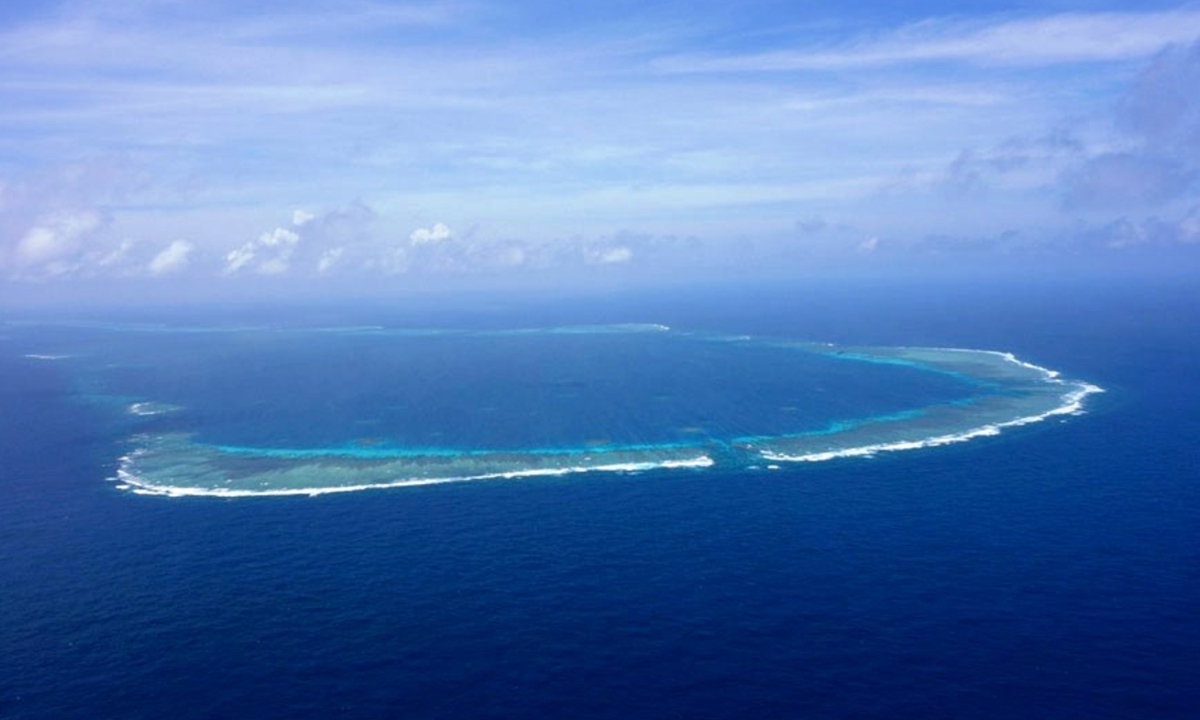
Ren'ai Jiao. File Photo.
Philippine President Ferdinand Marcos Jr. directed the new Philippine Navy Flag Officer in Command, Rear Admiral Jose Ma. Ambrosio Ezpeleta, to lead the naval force, amid tension in South China Sea, according to media reports. Chinese observers said the new Navy chief is likely to maintain the Philippine's policy of taking provocative actions against China, but China will firmly respond to any provocations from the Philippines with countermeasures as always.
Ezpeleta has vowed to sustain and further strengthen military might and presence at sea as part of efforts to deter attempts to subvert the country's sovereignty and territorial integrity. The new navy chief did not specifically mention China in his assumption speech on Friday, according to the Philstar.
Before becoming the new Navy chief, Ezpeleta was the Navy's 57th vice commander from August to November this year, its chief of staff from August 2022 to August 2024, and commander of the Naval Forces Southern Luzon from September 2019 to August 2022, the Manila Times reported.
The new appointment is not expected to significantly impact the Philippines' policies and stance in the South China Sea, Chen Xiangmiao, director of the World Navy Research Center at the National Institute for South China Sea Studies, told the Global Times on Sunday.
Since the Philippines under Marcos Jr. is undergoing a strategic shift, and its South China Sea policy has become more assertive, a military officer who is close to Marcos Jr. will further bolster his governance foundation and back the implementation of his South China Sea policy, Chen said.
Regarding the South China Sea issue, the Chinese side has consistently maintained an open attitude, expressing a hope for the Philippines to return to dialogue. Meanwhile, China will firmly respond to any provocations from the Philippines with a variety of measures, Ding Duo, a deputy director of the Institute of Maritime Law and Policy at China's National Institute for South China Sea Studies, told the Global Times on Sunday.
On the same day as the change of command in the Philippine Navy, the Philippine officials stated that its navy transported food and other supplies to the illegally grounded warship at China's Ren'ai Jiao (Ren'ai Reef) in the South China Sea without any confrontation with the Chinese side, according to media report.
With China's approval, the Philippines resupplied an illegally grounded military ship with living necessities at China's Ren'ai Jiao in the South China Sea via a civilian vessel on Thursday, the China Coast Guard (CCG) announced Friday.
The CCG conducted verification and maintained oversight throughout the process, said Liu Dejun, a CCG spokesperson, in a statement.
The Philippines is aware that each provocative action it takes has been met with targeted countermeasures from China, leading it to assess whether it can afford to halt the provisional agreement reached regarding Ren'ai Jiao, Ding said.
China has reached a provisional arrangement with the Philippines on managing the situation at Ren'ai Jiao in July this year, Chinese Foreign Ministry said.
Recently, the Philippine President signed the Philippine Maritime Zones Act and the Philippine Archipelagic Sea Lanes Act, attempting to solidify the illegal rulings of the 2016 arbitration case through domestic legislation. This move undermines regional peace, exacerbates tensions, while also inflicts damage on Philippines' own interests, according to Chen.
On Friday, a spokesperson for China's Ministry of National Defense urged the Philippines to return to the right track of resolving the South China Sea disputes through dialogue and consultation.
The Philippines, in collusion with external countries, carried out frequent military exercises in the South China Sea, disrupted peace and stability in the South China Sea, and undermined the interests and well-being of people in the region, spokesperson Zhang Xiaogang said.




